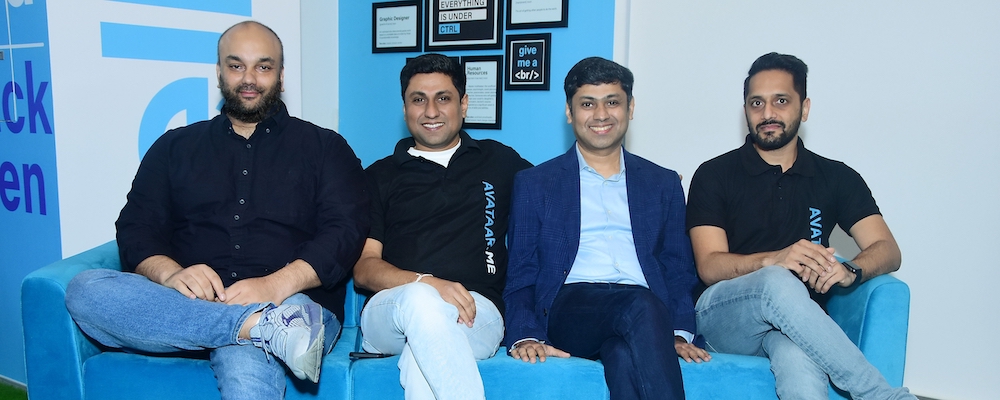The vast majority of e-commerce customers prefer to preview a product before making a purchase. That’s the reason why the likes of Amazon have historically struggled to move fashion and home decor items online. A San Francisco and Bengaluru-based startup is attempting to solve this problem and has just raised a new funding round to scale its operations.
AI and computer vision startup Avataar said on Friday it has raised $45 million in its Series B funding. The round was led by Tiger Global, and existing investor Sequoia Capital India participated. The six-year-old startup has raised about $55.5 million, including some financed by the founder and chief executive in the early years, across all funding rounds.
Avataar helps direct-to-consumer brands and e-commerce marketplaces with shaping their consumer journeys with 3D rendition of products. Firms can integrate Avataar’s plug-and-play technology into their systems, which then allows customers to visualize products in real-life size and feel in their living room using the phone’s camera.
The startup currently works with a number of firms, including the top two e-commerce marketplaces across furniture, large appliances and other categories, said Sravanth Aluru, founder and chief executive of Avataar, in an interview with TechCrunch. He declined to share the names of the clients, citing confidentiality agreements. (Some firms such as Samsung and Pepperfry have publicly acknowledged collaboration with Avataar.)
In a demo, Aluru dragged and dropped several products — couches and desks — to his living room from a partner e-commerce marketplace’s app and changed the color and the SKUs without having to reposition the virtual items in the house. The items can also be interactive. A virtual rendition of a refrigerator allows users to open and close the door, for instance.
Brands don’t need to make any major changes to be able to adapt Avataar’s offerings. As long as the product images are in at least 1080p resolution, Aluru said, Avataar can stitch a virtual and 3D version from it. For consumers, too, if they are using an iPhone or an Android smartphone launched in recent years, there’s a good chance that their phone has the computational and graphical power to support viewing and interaction with virtual objects, he said.
“Given the camera is the homescreen, you see significantly higher engagement time and brands are witnessing more than 3.5x sales conversion,” he said. The startup relays the engagement information to the partner brands which then further personalize their offerings to better serve the customers.
Aluru said an increasingly growing number of companies are beginning to adapt the technology as they recognize the benefits it can deliver. This trend is projected to only grow from here.
Without revealing the brand names, he said some smartphone firms have used Avataar’s technology to carry virtual launches. “We are today integrated across most platforms. If you’re seeing 3D on a big large-volume service, it’s likely powered by us,” he said.

By 2025, nearly 75% of the global population and almost all people who use social and communication apps will be frequent AR users, said Snap in a recent report, for which it collaborated with Deloitte. The report said there are already over 100 million customers who shop using AR.
Aluru said the startup is gearing up to be at the forefront as metaverse makes inroads and engages with several key players in the space.
“The metaverse is already here, just not evenly distributed. Avataar.me is leading the way in bringing scale creation capabilities to the largest brands to enable commerce — an application with tremendous promise in AR/VR environments,” said Shailesh Lakhani, managing director at Sequoia India, in a statement.
“Sravanth, Gaurav, and Mayank have been a delight to work with and Sequoia Capital India is excited to re-iterate its commitment in their Series B round.”
The digital and digitally influenced marketplace is projected to grow to $18 trillion by 2025, offering a monetization opportunity of over $50 billion over the next decade for the underlying platforms driving the 2D to 3D commerce shift, according to industry estimates.
“For the first time in history, we are now able to detect, understand, augment and manipulate consumers’ physical reality using a live camera feed. While our patented AI/CV capabilities are applicable to the overall metaverse evolution, we have started with an upfront focus on redefining consumers’ shopping experiences,” said Aluru.
“The platform will transform the consumer shopping experience at home on their mobile devices, through AR glasses/wearables, or even in a physical store exploring an infinite aisle of a digitally enabled catalogue.”
Evan Feinberg, partner at Tiger Global, said in a statement: “Consumers continue to look for a better eCommerce experience, and the innovative technology created by Avataar provides a powerful plug and play solution for its customers to meet this demand. As the digital world shifts from 2D to 3D, Avataar and its talented management team are well positioned in this fast-growing market.”































Comment